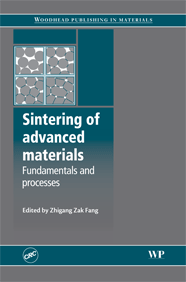Jul 12 2010
Sintering, the method of heating powder until particles adhere to the component required is a widely used manufacturing method with applications in areas such as ceramics, and by engineers using advanced materials in such sectors as electronics, automotive and aerospace engineering.
Sintering of advanced materials: Fundamentals and processes from Woodhead Publishing reviews important developments in this technology and its applications. The method of sintering is explored both at particle level and on an atomic scale as well as multi-scale modelling. A review of the fundamentals of sintering begins with the thermodynamics of sintering featuring sintering stress. The book also examines the theory behind computer modelling of sintering and presents examples to illustrate its application.

Advanced sintering processes such as atmospheric, vacuum and microwave sintering are discussed and practical and authoritative processing advice documented by experts in the field. A chapter focused on photonic sintering uses the example of photonic curing of silver nanoparticles to demonstrate the theory. The conclusion to the book reviews sintering of advanced materials including aluminium, titanium, refractory metals and ultrahard materials assessing mechanical properties.
With its distinguished editor and international team of contributors, Sintering of advanced materials: Fundamentals and processes reviews the latest advances in sintering and is a standard reference for researchers and engineers in a number of different fields.